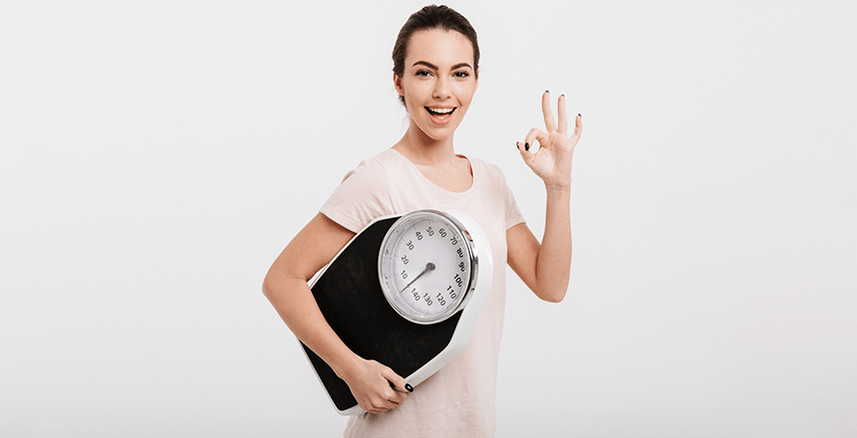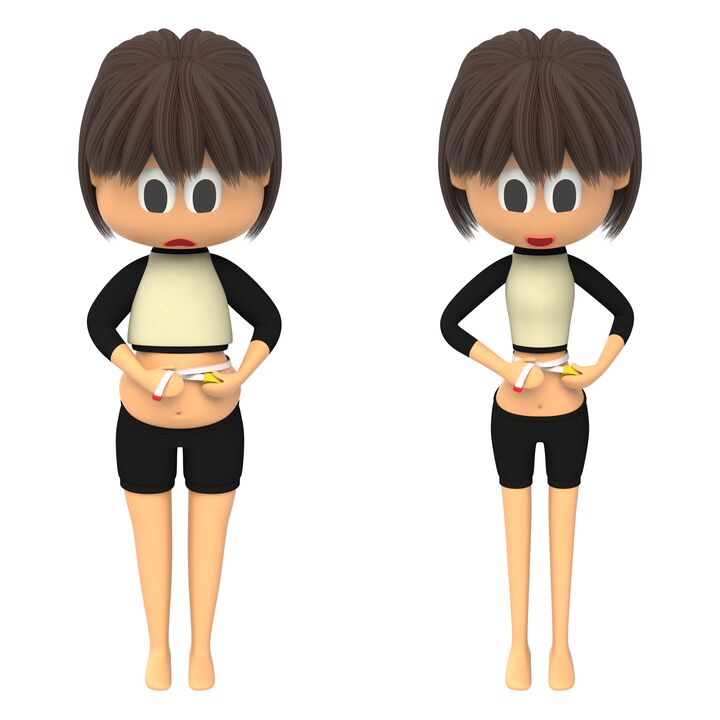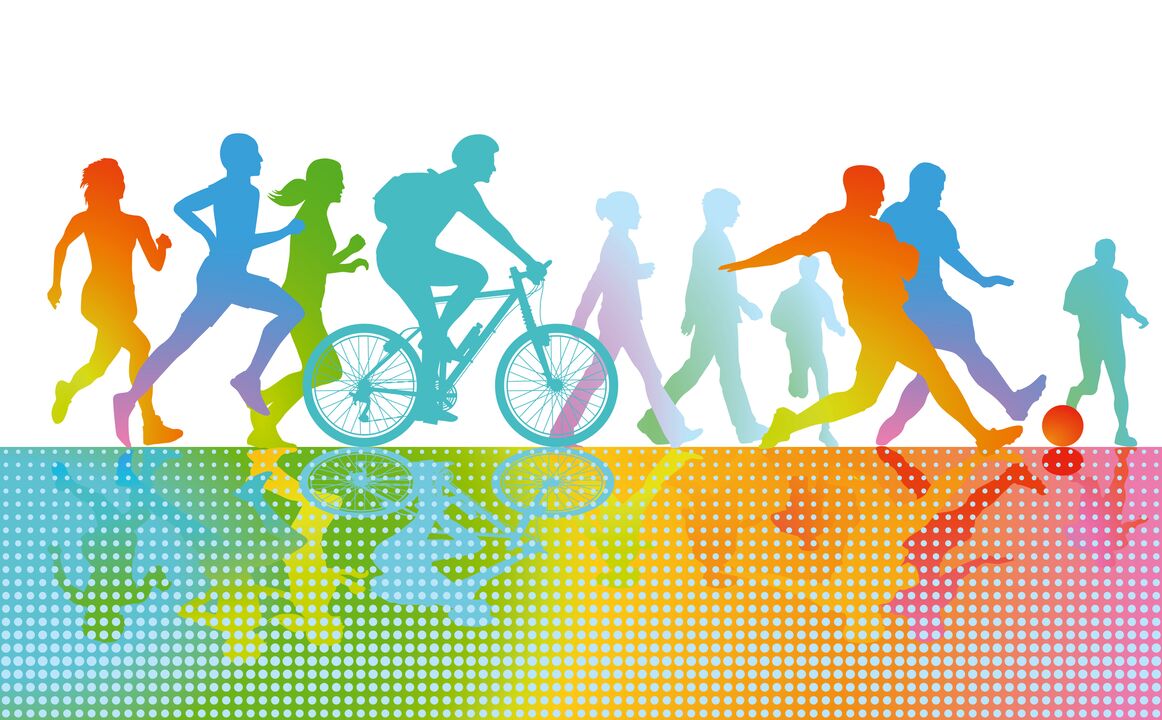
The purpose of this article is to form a correct understanding of the problem of excess weight, prioritize the solution of this problem and determine the direction of movement on the way to lose weight. In short, to answer a questionHow to Lose Weight?»
Are you overweight?
Not everyone has decided to fight the extra pounds, they are completely overweight. Subjective assessment of a person's body is often not confirmed by objective data on the presence of excess weight.
Often, in the pursuit of physical perfection, many achieve compliance with a particular image, and all that separates it is considered redundant, and in this case, it is enough to correct the figure with the help of loads on certain parts of the body.
That is the reason:
Step 1. Calculation according to anatomical and constitutional parameters and determination of your status by weight
To diagnose overweight, use the body mass index (BMI), recommended by the World Health Organization:
BMI \ u003d Weight (kg) / height (m²).
If, according to the results of the calculations, you fall into the category of overweight, then you should understand that while maintaining your normal lifestyle and diet in the future, you can already switch to the group of obesity. Steps to lose weight must be started immediately.
Step #2. Motivation
The goal is to lose weightfundamentally no different from other goals. This is a strategic conceptgoal achievement, as well asmaintain the resultsit is necessary to start any route precisely with the goal definition of this route.
First, we need to separate the concepts of goal and objective. Weight loss is a task that needs to be completed, it answers the question: "what to do? ". And the goal of losing weight should answer the question: "Why start all this? "
In the case of weight loss, you can set goals through motivation. It must be realized by the person himself, only then can one rely on the resistance to trials and stress that always accompany everyone during the weight loss period.

Everyone has their own motivation.
- Health. Overweight is primarily a threat to health: the risk of various cardiovascular diseases, respiratory, digestive system, disorders of the musculoskeletal system, genitourinary system, skin lesions, endocrine diseases.
- Expansion of physical abilities: easier to do regular daily physical activities (easier to climb stairs, do homework, just walk), opportunities to do your favorite sports, outdoor activities, active tourism, etc.
- DANanother purpose, which for many is a serious incentive:
- back to the regular wardrobe,
- clothing style,
- be in the trend of fashion trends,
- be an object of pride for oneself and loved ones, etc.
When a goal is defined, it must always be planted, so that in times of crisis, when "hands down", and there is a temptation to stop halfway, it plays the role of an ambulance to revive the desire to win.
Step #3. Finding the cause of excess weight and its removal
Immediately you need to take into account that it is right to do this under the guidance of a competent medical curator.
The main reason for the emergence of overweight is that energy intake from food exceeds its consumption and it accumulates in fat cells (adipocytes). And this may be the result of several factors.
Malnutrition: in quantitative and qualitative terms
The main thing I would like to point out is that an efficient approach does not include rapid weight loss (more than 5 kg per month, optimally 2-3 kg per month).The demand for weight loss within a week is naive, and talk of an urgent need for this among those who ask them. A long time to accumulate extra pounds in the body suggests a long -term project to get rid of them harmlessly to health.
You can often hear arguments in the form of:I ate a little, but I was still getting better.
If excess is stored, it means it comes in excess with food.
The easiest and most effective way to adequately evaluate your regular diet is to keep a food diary for 2 weeks. It should reflect:
- eating time,
- the amount and composition of food consumed,
- the amount of free fluid you drink
- time and amount of alcohol consumed.
For further analysis and efforts to develop proper eating habits, information on the state of food consumed (after psychological stress, before and after physical activity) is also useful.
Food diary analysis and dietary adjustment should be carried out by a nutritionist based on the calculation of daily needs for a particular person, as this takes into account individual characteristics, physiological characteristics, household stress, use of cars for transportation, level of physical sports activity, etc.
It is important to distribute the energy content of the diet during the day correctly: the meal with the most calories should fall during the day with maximum physical activity, when it can be fully utilized.
Common dietary mistakes:
- lack of breakfast
- snacks while running
- dinner, which in terms of energy value sometimes exceeds daily physiological requirements.
General recommendations for proper nutrition for weight loss
- A caloric deficit of 500-700 kcal/day, or about 30% of the total calculated caloric intake, should be achieved.
The daily energy value should not be reduced for women - below 1200 kcal, for men - below 1500 kcal.
Reducing daily calorie intake below this figure is unsafe, meaningless in the long run, because the kilograms lost quickly alter the metabolism in such a way that the body, to preserve itself after the end of the diet test on it, begins intensively. to recover the lost.
- Food, if possible, should be frequent (every 2. 5-3 hours) in small portions. It is advisable to take the last meal no later than 19: 00 or, alternatively, no later than 3 hours before bedtime.

Eat slowly, chew carefully. In this case, the nutrients received with the food have time to "signal" to the saturation center. Eating in a hurry causes the satiety signal to be received too slowly, when the stomach is full, i. e. The person has moved.
Other Japanese and Asian cuisines, in which chopsticks are used for eating, are very indicative in this sense.
First, this is part of their life philosophy, where eating is almost a ritual that affects health and longevity.
Second, the stick does not allow you to take a large portion, but as much as one can chew thoroughly.
In addition, due to this, mealtimes increase, and the body manages to receive satiety signals in a timely manner - as a result, a feeling of satiety appears after a much smaller portion of food is eaten than with fast food.
- Promotes weight loss and increases water intake- It is recommended to take 500 ml of water before each main meal.
- To exclude unnecessary stimulation of appetite and the work of the digestive organs, stimulant foods should not be present in the diet:strong soups, oranges, marinated, fried foods, spicy seasonings, alcohol.
- Special attention should be paid to the exclusion of alcoholic beverages., which in itself is a high-calorie food: the energy content of 100 g of alcohol is 700 kcal, which is approximately equal to the energy value of 100 g of butter.
Physical inactivity (inactive lifestyle)

Physical activity is an important component to achieving the desired energy balance, both during periods of weight loss, and to maintaining weight after achieving results.
Weight loss training should:
- berdos;
- build up gradually
- can be moderate (done for 1 hour without fatigue);
- can be intense (after 30 minutes of training, fatigue appears).
Weight loss programs recommend: 4-5 hours a week of moderate intensity physical activity or 2. 5-3 hours a week of vigorous intensity physical activity. Energy consumption at that load is 2000-2500 kcal.
- Walk every day for 30 minutes. One of the best types of activities for weight loss is walking intervals - 2-3 minutes. at a normal rate, then 2-3 minutes. acceleration, then slow down the beat and switch to a normal beat (2-3 minutes). Or run for 15 minutes.
- Sports game for 45 min. (volleyball, basketball, soccer, etc. )
- Five times a week for 1-1. 5 hours - swimming, shaping, aerobics, tennis, etc.
- Classes at the gym with weights to build muscle mass.
It is better to substitute different types of physical activity.
The most effective way to lose weight is to reduce fat while exercising before breakfast. During day and evening exercises, it is recommended to eat no later than 3 hours before them.
Violation of the endocrine glands
Hormonal disordersis the cause of overweight5-10%kes. If a traditional comprehensive weight loss program (healthy diet, physical activity) does not lead to a positive effect, an endocrinologist should be consulted.
The doctor will draw conclusions based on the data and examination results.laboratory research, which will provide information about the function of endocrine organs (thyroid gland, adrenal glands, gonads, endocrine part of the pancreas).
Based on the information received, the endocrinologist will be able to draw up a plan for therapeutic and preventive measures.
What is important to remember when starting to lose weight
- A person on the field is not a hero. You need professional support from specialists (nutritionists, physiotherapists, endocrinologists, psychologists) and close people. With you is strength.
- All your efforts, efforts will not be overlooked, the result is sure.
- It is always worth keeping in mind your goals and the motives that will lead to it.
- Don’t rest when you get the desired result. With proper eating habits and a newly acquired active lifestyle, don’t part - extra pounds are always on the lookout.













































































